Immersive Tech Week, one of Europe’s most prominent VR events, formerly known as VR Days in Amsterdam, celebrated its 10th anniversary this year in Rotterdam. The event continued with its well-established program tracks, including the three-day conference, trade exposition, installation art show Church of VR, and numerous side events ranging from theatre performances to matchmaking meetups and investment dinners. The decennial edition showcased the current state of immersive media, reflected on a decade of its own developments, and previewed a speculative future of immersion.
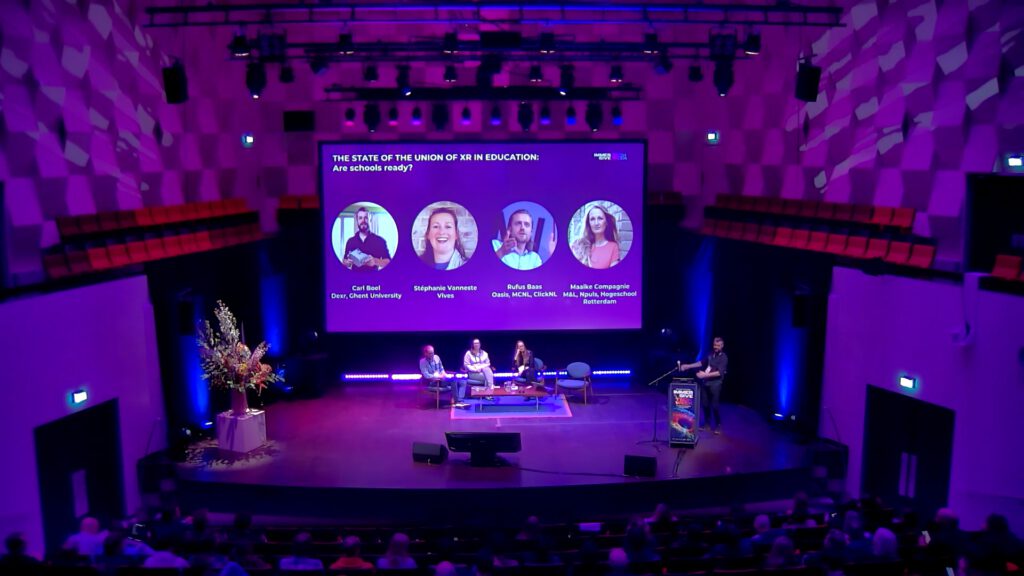
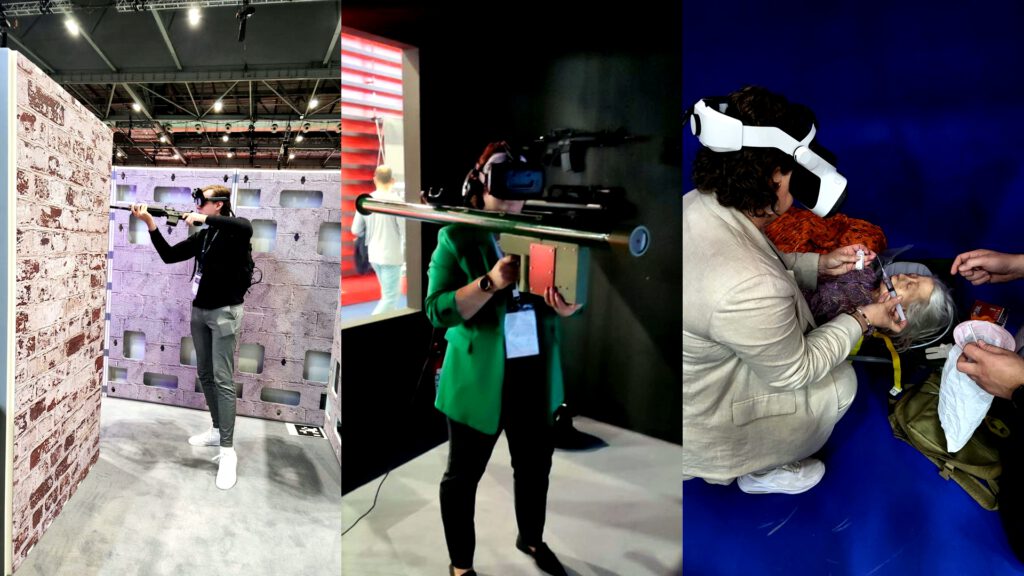
Supported by EU programs, the convention featured a wide range of European institutions and research initiatives in immersive media. Education played a significant role, with exchanges on XR learning activities, particularly from Holland, Belgium, and Scandinavia. While demand for immersive learning programs in schools and academia is increasing, logistical and systemic challenges persist. Practical implementations are primarily focused on training programs in traditional industrial sectors, notably the automotive and healthcare industries. A notably stronger presence of military applications was evident in this year’s expo and lecture programs.
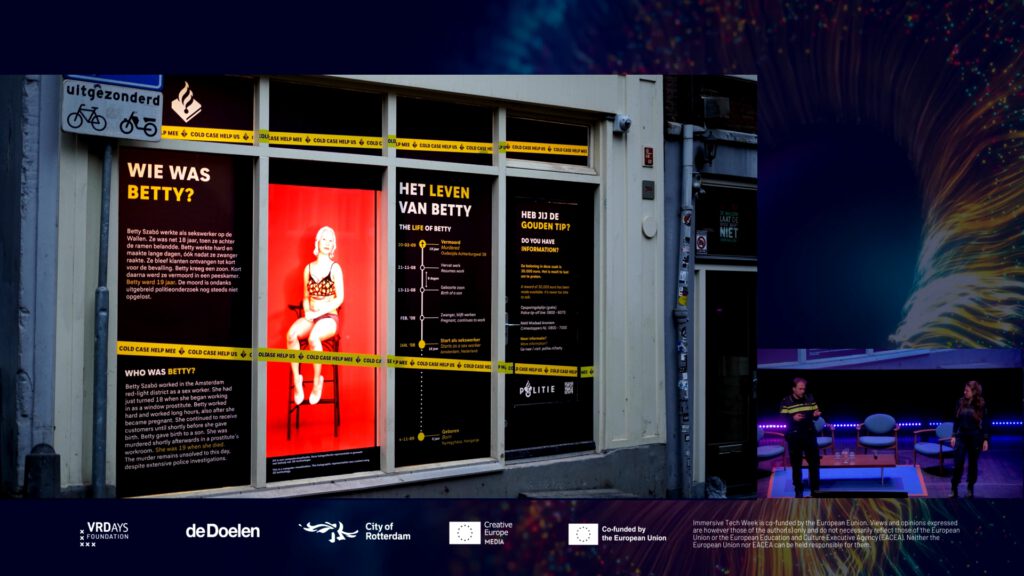
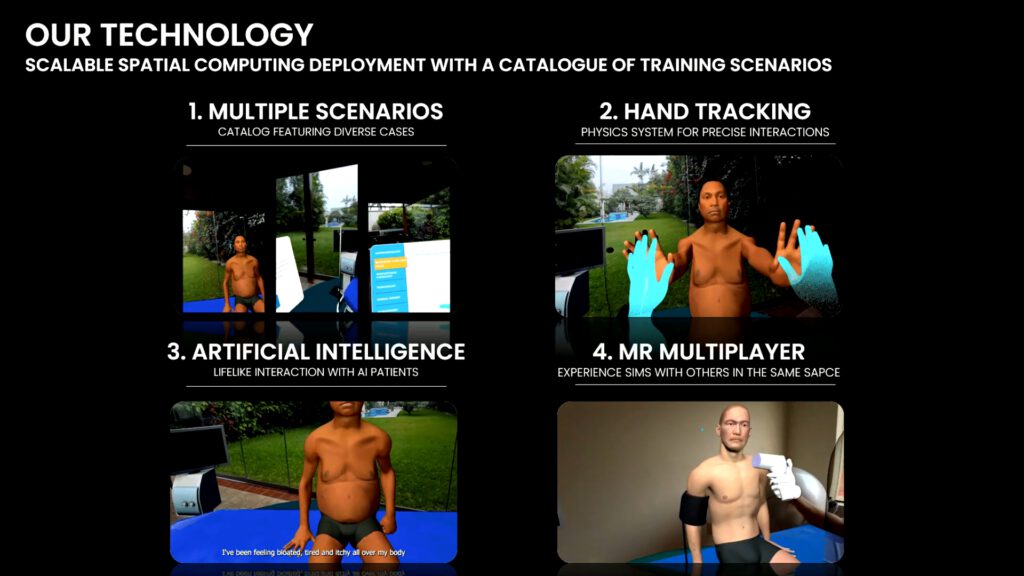
While VR remained the conference’s central theme, future developments highlighted AR and AI applications. Some visionaries even described AI as a crucial stepping stone toward VR’s full potential. Their perspectives emphasized groundbreaking interface designs enabled by AI integration, which could accelerate VR adoption in the near future. AR applications still benefit from a novelty factor, making them effective for attraction and promotional strategies, though broader everyday usage is yet to be realized—a potential the technology seems poised to fulfill.
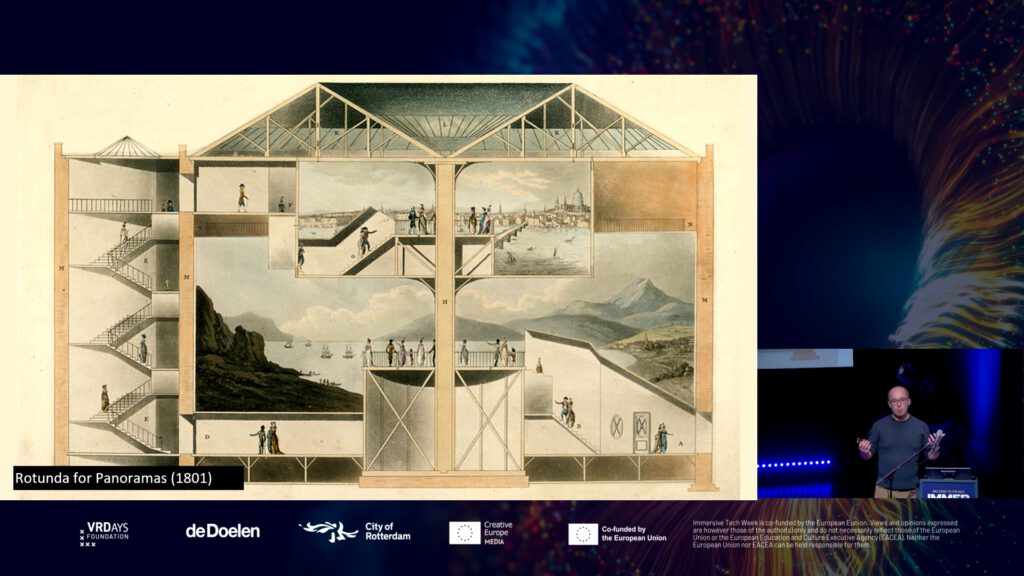
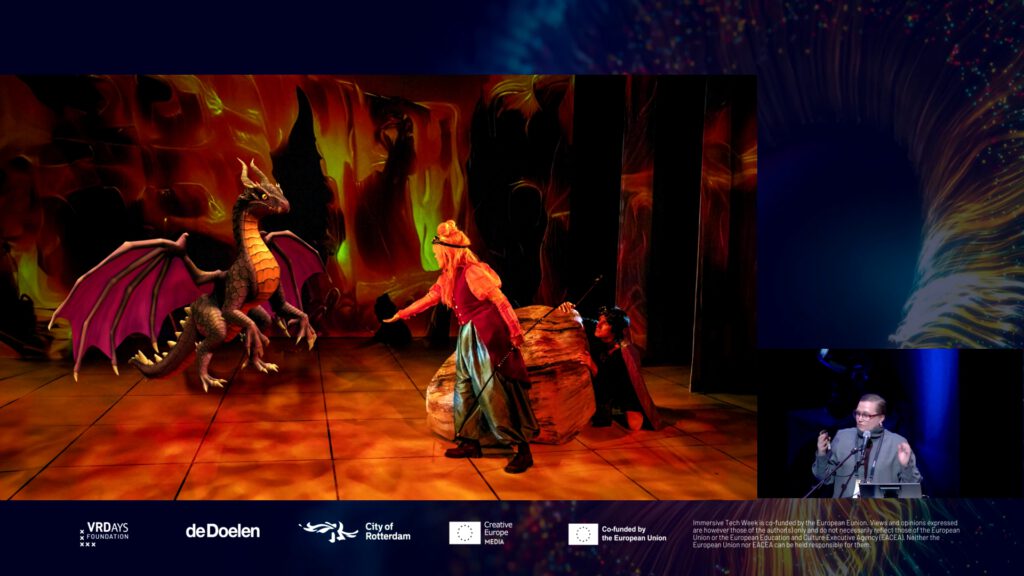
The event also featured compelling showcases combining immersive technologies with live stage performances. Historical retrospectives connected these efforts to a long tradition of immersive storytelling extending well beyond the digital age. Immersive storytelling remained closely linked with cinematic experiences, particularly in the Church of VR art shows. VR gaming was prominently represented by Schell Games and Vertigo Games: the former emphasized VR on casual devices, while the latter reported on AAA efforts for cross-platform production.
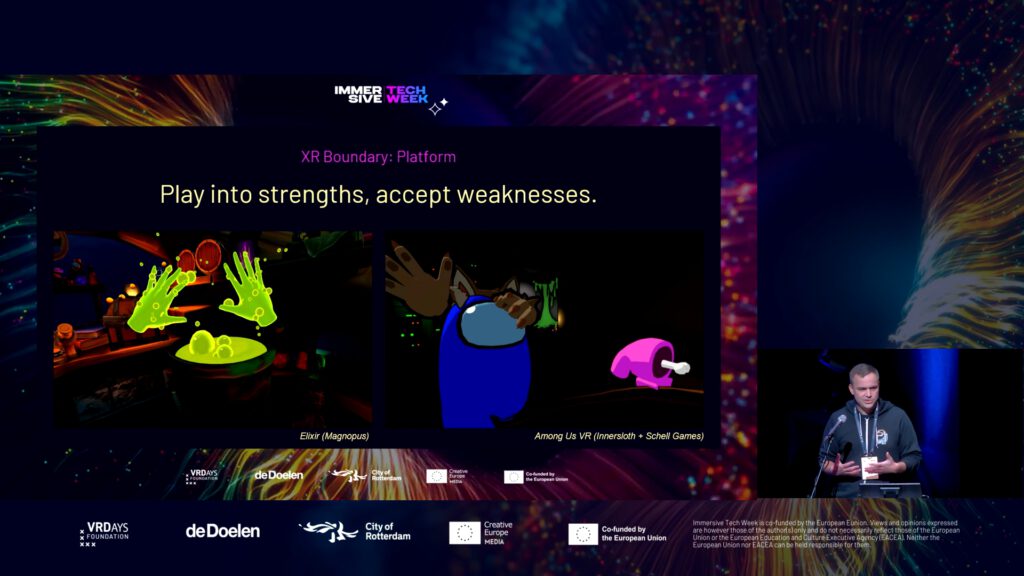
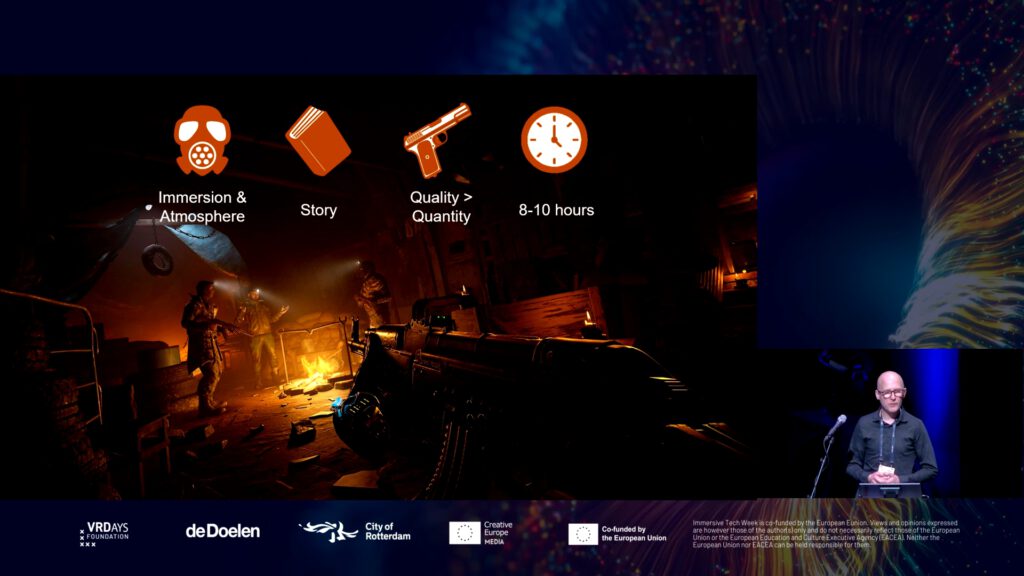
After a decade of annual shows centered around the former VR Days, Immersive Tech Week paid tribute to current industry trends by broadening its focus from VR to XR technologies and applications. It remains a vital platform for virtual reality in Europe and offers complementary cultural insights alongside technology-focused trade shows like AWE EU and industrial VR showcases like Laval Virtual.

